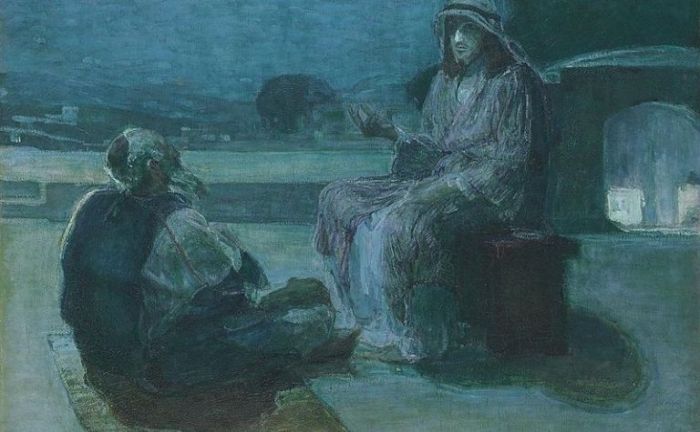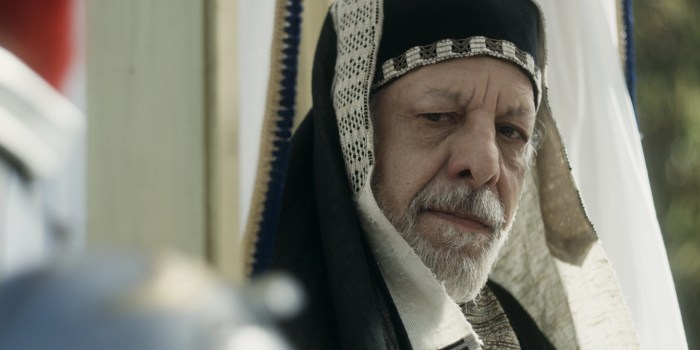Who did nicodemus try to heal – In the realm of biblical narratives, the enigmatic figure of Nicodemus emerges, his healing attempts shrouded in mystery. This article delves into the depths of Nicodemus’s role as a healer, examining the individuals he sought to cure, the reasons behind his unsuccessful endeavors, and the cultural and ethical considerations that shaped his practices.
Nicodemus’s healing attempts, while unsuccessful, provide a fascinating glimpse into the medical knowledge and limitations of biblical times, as well as the profound influence of cultural and religious beliefs on healing practices. Join us as we unravel the complexities surrounding Nicodemus’s healing endeavors.
Nicodemus’s Healing Attempts: Who Did Nicodemus Try To Heal

Nicodemus was a prominent Pharisee and a member of the Sanhedrin, the Jewish high court. He was also a secret disciple of Jesus. In the Gospel of John, Nicodemus is portrayed as a man who was seeking to understand Jesus’ teachings and who eventually came to believe in him.
On one occasion, Nicodemus brought a man to Jesus who was blind from birth. He asked Jesus to heal the man, but Jesus refused. Jesus said that the man’s blindness was not a punishment for sin but was instead an opportunity for God’s glory to be revealed.
Nicodemus attempted to heal the blind man, a story that resonates with the themes of healing and faith explored in literary works like Lazarillo de Tormes Tratado 1 . In this classic Spanish novel, the protagonist Lázaro experiences various hardships and encounters with dishonest characters, mirroring the struggles and search for salvation depicted in the biblical narrative of Nicodemus.
Jesus then healed the man, and Nicodemus was amazed.
On another occasion, Nicodemus brought a woman to Jesus who was possessed by a demon. He asked Jesus to cast out the demon, but Jesus again refused. Jesus said that the woman’s possession was not a punishment for sin but was instead an opportunity for God’s power to be revealed.
Jesus then cast out the demon, and Nicodemus was once again amazed.
Nicodemus’s healing attempts were unsuccessful because he did not understand the nature of Jesus’ ministry. Jesus was not a healer in the traditional sense. He did not heal people to make them feel better or to make them more comfortable.
He healed people to reveal the glory of God and to demonstrate his power over sin and death.
Medical Knowledge and Limitations in Biblical Times

In the biblical era, medical understanding was influenced by ancient Greek and Roman practices, as well as religious beliefs and cultural traditions. The prevailing view was that illnesses and injuries were often caused by supernatural forces, such as demonic possession or divine punishment.
Medical knowledge was limited compared to modern standards. Physicians relied on observation, experience, and herbal remedies. They lacked advanced diagnostic tools and surgical techniques, and treatments were often ineffective or even harmful.
Types of Illnesses and Injuries, Who did nicodemus try to heal
Common illnesses in biblical times included leprosy, dysentery, malaria, and tuberculosis. Injuries were often sustained during warfare, accidents, or agricultural work.
Limitations of Medical Knowledge and Technology
Nicodemus, as a physician, faced significant limitations in his ability to treat illnesses and injuries. He lacked:
- An understanding of germ theory and the role of microorganisms in disease.
- Advanced surgical techniques and anesthesia.
- Effective medications for treating infectious diseases.
- Access to diagnostic tools such as microscopes and X-rays.
Cultural and Religious Beliefs

Nicodemus’s healing practices were profoundly influenced by the cultural and religious beliefs prevalent in ancient Judea.
Role of Faith and Prayer
In the Jewish tradition, healing was often attributed to divine intervention. Nicodemus, as a devout Pharisee, believed that faith in God and prayer played a crucial role in healing. He likely incorporated prayers and supplications into his healing attempts, seeking divine assistance and guidance.
Belief in Demonic Influence
Another significant belief in Jewish culture was the notion of demonic influence on illness. Nicodemus may have considered the possibility that some illnesses were caused by demonic possession or evil spirits. This belief could have influenced his approach to healing, leading him to employ exorcisms or other rituals aimed at驱逐邪灵。
Emphasis on Ritual Purity
Jewish law placed great emphasis on ritual purity, which was believed to be essential for physical and spiritual well-being. Nicodemus likely followed these purity regulations, adhering to specific dietary restrictions, washing rituals, and other practices aimed at maintaining a state of purity.
He may have believed that adherence to these rituals contributed to healing and prevented illness.
Ethical Considerations

Nicodemus’s healing attempts raised several ethical considerations that he had to navigate. As a respected religious leader, he was bound by both the laws of the time and the ethical principles of his faith.
One of the primary ethical considerations was the potential risks associated with his healing methods. In biblical times, medical knowledge was limited, and treatments often involved experimental or unorthodox approaches. Nicodemus had to weigh the potential benefits of his actions against the risks of causing harm or worsening the patient’s condition.
Responsibilities and Obligations
As a healer, Nicodemus also had responsibilities and obligations towards his patients. He was expected to provide the best possible care based on his knowledge and abilities. This included maintaining patient confidentiality, respecting their autonomy, and avoiding any actions that could exploit or harm them.
In addition, Nicodemus had to consider the broader implications of his healing attempts. As a religious leader, his actions could influence the beliefs and practices of others. He had to ensure that his methods did not conflict with established religious doctrines or promote superstition or false hope.
Commonly Asked Questions
Who was Nicodemus?
Nicodemus was a Pharisee and a member of the Jewish ruling council, the Sanhedrin.
What individuals did Nicodemus attempt to heal?
The specific individuals Nicodemus attempted to heal are not mentioned in the biblical text.
Why were Nicodemus’s healing efforts unsuccessful?
The reasons for Nicodemus’s unsuccessful healing attempts are not explicitly stated in the Bible, but may have been due to limitations in medical knowledge and technology.

